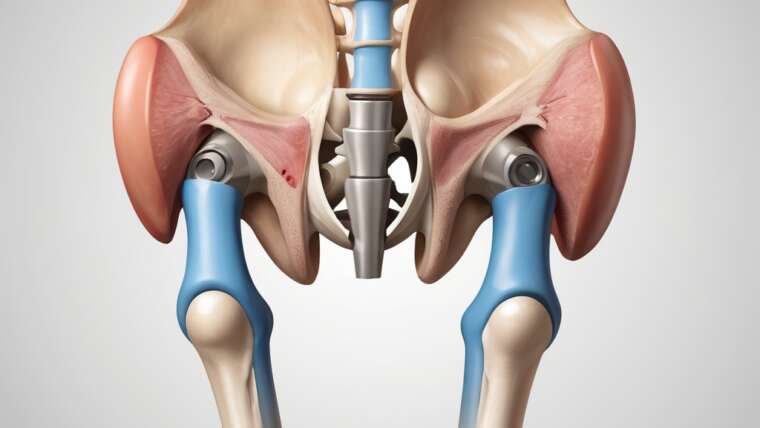Many runners dream of breaking the 2-hour half marathon barrier. The challenge requires you to maintain a 9:09-minute mile pace throughout the 13.1-mile distance. This test pushes your physical limits and mental strength to new heights.
Running 21.1 kilometers under 2 hours takes more than just showing up on race day. Your race day’s success relies on well-laid-out training, effective pacing strategy, and smart execution. This piece provides everything you need to know about reaching your 2-hour half marathon goal, from training duration to specific pace targets.
You’ll find detailed training principles, speed work requirements, strength training, and race-day strategies that will help you finish under 2 hours.

Table of Contents
- 1 Understanding the 2-Hour Half Marathon Pace
- 2 Building Your Aerobic Engine
- 3 Speed Training Essentials
- 4 Strength and Form Optimization
- 5 Race Day Execution Strategy
- 6 Here are some FAQs about 2 hour half marathon pace:
- 6.1 Is 2 hours for a half marathon good?
- 6.2 What percentage of the population can run a sub-2 hour half marathon?
- 6.3 What is a good half marathon pace in kilometers?
- 6.4 What pace is a 2 hour 50 minute marathon?
- 6.5 How to run 21km in 2 hours?
- 6.6 What is a realistic half marathon time?
- 6.7 What pace is 21km in 2 hours?
- 6.8 What is elite half marathon time?
- 6.9 Is 7 minutes per kilometer good?
- 6.10 What pace strategy for 2 hour half marathon?
- 6.11 Can you walk a half marathon in 2 hours?
- 6.12 Can I run 21km without training?
Understanding the 2-Hour Half Marathon Pace
A sub-2 hour half marathon requires maintaining a steady pace of 9:09 minutes per mile or 5:41 minutes per kilometer throughout the 13.1-mile distance. Your chances of success improve when you target a slightly faster pace of 8:46 per mile, which builds a buffer for race day variables.
Breaking down the 9:09 minute/mile pace
Your target splits should look like this at key checkpoints:
| Distance | Target Time |
|---|---|
| 5 Miles | 45:45 |
| 10K | 56:51 |
| 10 Miles | 1:31:30 |
| Finish | 2:00:00 |
Required fitness standards
These specific time targets should be within your reach before attempting a sub-2 hour half marathon:
- 5K: Complete in 25-26 minutes
- 10K: Finish under 54 minutes
- Weekly mileage: Maintain 15-30 miles consistently
Assessing your current capabilities
Several factors determine your readiness for a sub-2 hour attempt. Your base training volume should reach at least 20 miles per week. The focus should shift to improving shorter distances if your current 5K time exceeds 26 minutes or your 10K time is above 54 minutes.
The best preparation includes comfortable two-hour runs at a slower pace without complete exhaustion. This endurance foundation is vital because your body needs time to develop neuromuscular adaptations that maintain the required intensity throughout the race.
Your fitness level matches the sub-2 hour goal when you consistently hit these paces during training sessions 6-8 weeks before race day. Speed matters but endurance plays an equally significant role. The focus should be on increasing weekly mileage rather than speed work if you excel at shorter distances but struggle with the half marathon pace.
Building Your Aerobic Engine
A strong aerobic foundation helps you maintain your target pace throughout the half marathon distance. Let’s take a closer look at the key components of aerobic development that will support your sub-2 hour goal.
Heart rate zone training fundamentals
Your heart rate training needs structure across five specific zones. Each zone serves a distinct purpose in your development. You should spend 70-80% of your weekly training in Zones 1 and 2:
| Zone | Heart Rate % | Purpose |
|---|---|---|
| Zone 1 | 68-73% | Recovery/Easy |
| Zone 2 | 73-80% | Endurance Building |
| Zone 3 | 80-87% | Tempo Efforts |
| Zone 4 | 87-93% | Threshold Work |
| Zone 5 | 93-100% | Speed Training |
Progressive mileage building
Safe aerobic capacity development requires gradual progression. Your weekly mileage should not increase by more than 10% per week. You want to build up to 30-40 miles per week for a sub-2 hour half marathon. Long runs should last at least 90 minutes to maximize aerobic adaptations.
Key benefits of aerobic base building:
- Increases mitochondrial density for better energy production
- Improves running economy
- Improves fat-burning efficiency
- Strengthens cardiovascular system
Recovery run importance
Recovery runs help maintain high weekly mileage while preventing burnout. These runs work best within 24 hours after hard workouts. Keep them between 20-40 minutes at a conversational pace.
Recovery runs do more than just add miles. They boost blood flow throughout your body and help clear lactic acid buildup from previous hard sessions. Your body can better access fat stores at lower intensities, which improves fat-burning capabilities.
The best recovery benefits come when you maintain your heart rate between 65-75% of your maximum during these sessions. This intensity allows good blood flow while minimizing extra stress on your body. Note that the goal isn’t to push the pace – it’s to promote active recovery while building your aerobic foundation.
Speed Training Essentials
Speed training is the life-blood of your sub-2 hour half marathon preparation. You need a mutually beneficial blend of different workout types to build speed and endurance.
Tempo run progressions
Tempo runs should feel challenging but controlled, with an effort level of 7-8 out of 10. You should start with shorter durations and gradually increase both time and intensity. A progression pattern that works has:
| Workout Phase | Duration | Recovery |
|---|---|---|
| Early Phase | 15 min at 95% goal pace | 3 min rest |
| Mid Phase | 20 min at goal pace | 2 min rest |
| Peak Phase | 2 x 20 min at goal pace | 2 min rest |
Interval training protocols
Your interval training should follow a well-laid-out progression. Start with simple workouts and build complexity. Add 3-5 running strides to your easy workouts before you try more challenging sessions. Here are key workout examples:
- 5 x 400 meters, progressing to 10 x 400 meters as fitness improves
- 6 x 6 minutes at 105% of goal pace with 3-minute recovery jogs
- 2-3 x 3 miles at goal half-marathon pace with 2-3 minutes recovery
Race pace practice sessions
Race-specific pacing is vital to success. Your training should have regular sessions at your target 9:09 minute/mile pace. A proven approach makes 1-3 of your mid-week run miles at race pace. These key workouts should be part of your routine as race day approaches:
Progressive Race Pace Sessions:
- 6-8 weeks out: 2-3 x 3 miles at goal pace
- 4 weeks out: 2 x 4 miles at goal pace
- 2-3 weeks out: 6-8 miles at goal pace
Note that balance between speed work and recovery is essential. Regular strength training sessions will boost muscle endurance and stability. These workouts will build your capacity to maintain your target pace throughout the half marathon distance.
Strength and Form Optimization
Strength training and proper form are vital foundations to keep your target pace throughout the 13.1-mile run. Athletes who want to finish strong should cross-train with strength workouts. Research shows this improves race performance.
Running-specific strength exercises
Your weekly training plan needs these five core exercises to maintain good form until you cross the finish line:
- Bicycles: This dynamic exercise works your lower abs and mimics running motion. Perform for 30-60 seconds.
- Advanced plank: Your core muscles and glutes get stronger when you alternate leg and arm raises.
- Reverse plank with leg lifts: Your erector spinae muscles and glutes work together for better posture.
- Marching bridge: Your hip stability and glute activation improve to keep your pelvis stable.
- Side plank with leg raises: Your oblique strength builds up to keep your spine properly aligned.

Form analysis and improvement
Your running posture affects your efficiency and risk of injury. These form elements need your attention:
- Keep cadence between 170-185 steps per minute
- Your feet should land under your center of mass
- Stand upright without leaning at the waist
- A forward head position raises your injury risk by 50% – avoid it
Injury prevention techniques
Strength training helps prevent injuries during your half marathon preparation. Your running workouts become more effective when you add regular strength sessions that boost muscle endurance and stability.
You can lower your injury risk by:
- Adding 2-3 strength sessions each week
- Including pre-hab movements in your warm-up
- Watching for running pain versus discomfort
- Making strength training a priority – it could mean the difference between a strong finish or breaking down midway
Note that proper form becomes more important as you get tired during longer runs. A strong core supports every movement and helps maintain proper posture. Your legs move more efficiently too. These strength exercises and form improvements will help you keep your target pace throughout the half marathon distance.
Race Day Execution Strategy
Your race day strategy can make the difference between reaching your sub-2 hour half marathon goal and missing the mark. Smart pacing and proper preparation will get you ready to conquer the 13.1-mile challenge.
Pacing strategy by mile
You need a disciplined approach to pacing to achieve your target time. The optimal performance comes from a conservative start and maintaining even splits or slightly negative splits throughout the race.
First 3 miles: Start at 9:20-9:25 per mile
- Mile 1-2: Hold back and stay controlled
- Mile 3: Gradually settle into goal pace
Middle miles (4-10): Target 9:09 pace
| Checkpoint | Target Time |
|---|---|
| 5K mark | 28:23 |
| 10K mark | 56:44 |
| 10-mile mark | 1:31:30 |
Final 5K: Maintain or slightly increase pace if feeling strong
Nutrition and hydration timing
Proper fueling is a vital part of maintaining your target pace throughout the race. This strategic nutrition plan works effectively:
Carbohydrate intake:
- Start fueling at the 45-minute mark
- Take 30-60 grams of carbs per hour
- Space intake every 30 minutes
Hydration strategy:
- Early race hydration is essential
- Take 100-150ml at each water station
- Small sips prevent stomach discomfort
- Heavy sweaters should think about electrolyte supplementation
Course management tactics
Smart course management helps you maintain your target pace:
Terrain strategy:
- Run hills by effort rather than strict pace
- Reduce speed slightly on uphills
- Recover time gradually on downhills
- Keep even effort on flat sections
Race execution tips:
- Get there 60 minutes before start time for proper warm-up
- Do a 10-15 minute easy jog with 3-4 strides at race pace
- Split the race into manageable segments
- Pick off one runner at a time in later miles
- Use mantras when fatigue sets in to stay mentally strong
Note that your race execution should match your training. The nutrition, hydration, and pacing strategies you’ve practiced during long runs should be your guide. This tested approach helps maintain the steady 9:09 minute/mile pace needed for your sub-2 hour half marathon goal.
A sub-2-hour half marathon just needs dedication, smart training, and precise execution. Your success depends on a 9:09 minute per mile pace while you build adequate aerobic fitness through well-laid-out training. Speed work alone won’t get you there. The foundation you need for race day success comes from balanced training that combines tempo runs, intervals, and strength work.
Your sub-2 hour attempt succeeds or fails based on race day execution. Early smart pacing saves energy for strong final miles. Proper nutrition and hydration keep your engine running smoothly throughout the distance. You should trust your training and stick to your race strategy even when the challenge feels overwhelming.
Consistent training starts your journey to a sub-2 hour half marathon, and disciplined execution completes it. Each workout moves you closer to your goal and builds the strength and endurance you need to maintain target pace for 13.1 miles. The process deserves your focus. Small victories along the way deserve celebration, and every second counts when you chase this meaningful milestone.
Here are some FAQs about 2 hour half marathon pace:
Is 2 hours for a half marathon good?
Yes, completing a half marathon in 2 hours is a respectable accomplishment and shows good fitness. To achieve a 2 hour half marathon pace, runners need to maintain an average pace of 5:41 minutes per kilometer. This goal is highly achievable with proper training and a consistent running schedule.
What percentage of the population can run a sub-2 hour half marathon?
A sub 2 hour half marathon pace is an impressive milestone achieved by a relatively small percentage of runners. Approximately 10-20% of recreational runners can complete a half marathon in under 2 hours, depending on age and fitness levels. This makes it a significant achievement in the running community.
What is a good half marathon pace in kilometers?
A good half marathon pace depends on individual fitness and experience. For many runners, 6 minutes per kilometer is a solid pace, while a sub 2 hour half marathon pace km requires maintaining around 5:41 minutes per kilometer. Advanced runners may aim for sub-5-minute kilometers.
What pace is a 2 hour 50 minute marathon?
To complete a marathon in 2 hours and 50 minutes, you would need a pace of approximately 4:01 minutes per kilometer. This is much faster than the pace for sub 2 hour half marathon, which is 5:41 minutes per kilometer, and requires elite-level training and endurance.
How to run 21km in 2 hours?
To run 21 kilometers in 2 hours, you need to maintain a 2 hour half marathon pace km of 5:41. Focus on endurance training, speed intervals, and proper pacing strategies. Nutrition and hydration also play critical roles in achieving this time.
What is a realistic half marathon time?
A realistic half marathon time varies based on experience and fitness. Beginners may aim for 2:30–3:00, while intermediate runners strive for the pace for sub 2 hour half marathon, or faster. Elite runners often finish under 1:10.
What pace is 21km in 2 hours?
To run 21 kilometers in 2 hours, the required pace is 5:41 minutes per kilometer. This is the exact sub 2 hour half marathon pace km, and achieving it involves steady, disciplined training over weeks or months.
What is elite half marathon time?
Elite half marathon times are typically under 1 hour for men and 1:10 for women. These runners maintain a pace much faster than the 2 hour half marathon pace, often running sub-3 minutes per kilometer.
Is 7 minutes per kilometer good?
Yes, 7 minutes per kilometer is a solid pace for beginners or those focusing on endurance. However, for a sub 2 hour half marathon pace, the target is 5:41 minutes per kilometer, which is significantly faster.
What pace strategy for 2 hour half marathon?
To achieve a sub 2 hour half marathon pace, start at a consistent 5:41 minutes per kilometer. Avoid starting too fast and conserve energy for the final kilometers. Use training runs to practice maintaining this pace under fatigue.
Can you walk a half marathon in 2 hours?
Walking a half marathon in 2 hours would require a very fast walking pace of 5:41 minutes per kilometer, which is typically a running speed. Most walkers finish in 3-4 hours, making this unrealistic for walking.
Can I run 21km without training?
Running 21 kilometers without training is risky and could lead to injury. Achieving the pace for sub 2 hour half marathon is nearly impossible without proper preparation, as endurance and pacing require consistent conditioning.


